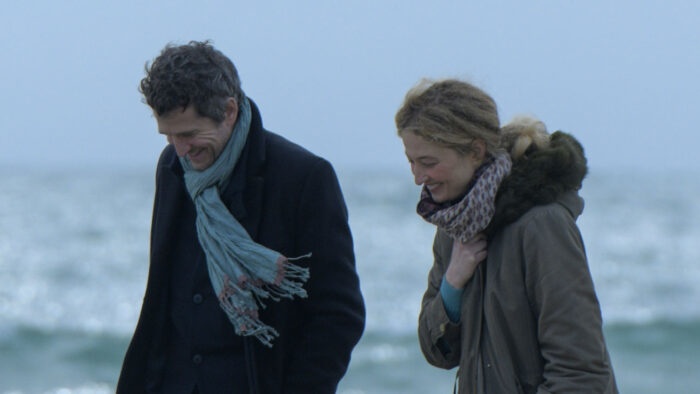Stars of European quality cinema, French actor Guillaume Canet and Italian actress Alba Rohrwacher, deliver unforgettable performances as former lovers in Stéphane Brizé’s tender and insightful story set between seasons. A nearly fifty-year-old Parisian film star (Canet) escapes a failed theatre debut to a seaside town where Alice (Rohrwacher) happened to settle years ago. It’s been years since their last encounter, and life has taken them in different directions. The wounds of their separation have slowly healed, or have they?
Past choices and present dissatisfaction – the elements might be familiar, but Brizé and co-writer Marie Drucker’s story is fresh, managing to be both humorous and genuinely touching. The film begins with a playful depiction of modern people’s vague attempts to find salvation through external means. Canet’s portrayal of a vacation complex equipped with the latest technology has a hint of Jacques Tati and showcases his talent for situational comedy. Later, the warmth of Alice’s cosy home and moments with family remind us that even together, a person can feel alone. As in life, nothing is straightforward, and ultimately, against the majestic landscapes, we are all very, very small.
One of France’s most essential contemporary directors, STÉPHANE BRIZÉ (b. 1966) moved from studying electronics to drama studies and working as a television technician in Paris. His debut feature Le bleu des villes (1999) was awarded in Cannes’ Directors’ Fortnight. His second feature Not Here to Be Loved (2005) was a sympathetic story of a lonely man who regains the spark for life by partaking in tango lessons. Standouts from Brizé’s extensive oeuvre include sensitive depictions of the human mind, such as the César-winning Mademoiselle Chambon (2009) and the Guy de Maupassant adaptation A Woman’s Life (2016), as well as the trilogy exploring the flipside of capitalism from an individual’s perspective, The Measure of Man (2015), At War (2018), and Another World (2021).
Milja Mikkola
